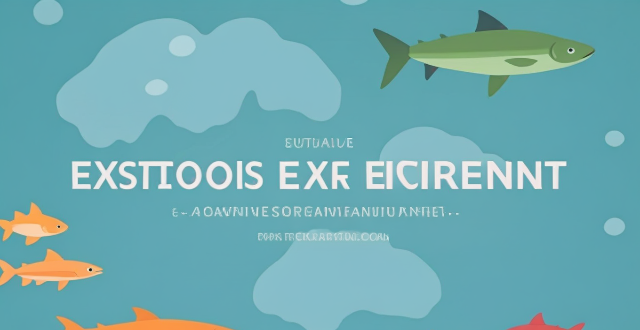This text discusses the various impacts that extreme weather events, such as hurricanes and typhoons, have on the fishing sector. It outlines direct damage to fishing infrastructure like vessels, ports, and processing facilities, disruption of fishing operations due to safety concerns and loss of gear, environmental changes affecting fish populations, economic impact on fishermen and communities including loss of income, market disruptions, and recovery costs, and long-term implications for the industry such as shifting fishing patterns, policy changes, and sustainability efforts. It concludes by highlighting the importance of understanding these impacts and working together to develop strategies that can build resilience against future extreme weather events.

Extreme Weather Events and Their Impact on the Fishing Sector
Extreme weather events, such as hurricanes and typhoons, can have significant impacts on the fishing sector. These impacts can be categorized into several key areas:
Direct Damage to Fishing Infrastructure
- Fishing Vessels: Storm surges and high winds can damage or destroy fishing vessels, making it difficult for fishermen to continue their operations.
- Ports and Docks: Ports and docks are essential infrastructure for the fishing industry, and they can be severely damaged by extreme weather events, disrupting the loading and unloading of catches.
- Processing Facilities: Processing facilities that handle and store fish can be destroyed or rendered inoperable due to flooding or wind damage.
Disruption of Fishing Operations
- Safety Concerns: Fishermen may be unable to go out to sea during and after a storm due to safety concerns, leading to a temporary halt in fishing activities.
- Closure of Fishing Grounds: Some fishing grounds may be closed temporarily due to environmental concerns or safety risks associated with the aftermath of extreme weather events.
- Loss of Gear: Fishing nets, traps, and other gear can be lost or damaged during storms, adding to the cost of recovery for fishermen.
Environmental Changes Affecting Fish Populations
- Habitat Destruction: Extreme weather events can alter marine habitats, which can negatively affect fish populations and the overall health of ecosystems.
- Water Quality Issues: Flooding can introduce pollutants into waterways, affecting the quality of the water where fish live and potentially contaminating seafood.
- Temperature Changes: Changes in water temperature caused by extreme weather can influence the behavior and distribution of fish species.
Economic Impact on Fishermen and Communities
- Loss of Income: Fishermen who are unable to fish during and after a storm face a loss of income, which can be particularly devastating for small-scale operators.
- Market Disruptions: Disruptions in the supply chain can lead to fluctuations in fish prices and availability, affecting both fishermen and consumers.
- Recovery Costs: The cost of repairing or replacing damaged equipment and infrastructure can be substantial, placing financial strain on individuals and communities reliant on fishing.
Long-Term Implications for the Industry
- Shifting Fishing Patterns: Over time, if extreme weather events become more frequent or severe, fishing patterns may need to adapt to new environmental realities.
- Policy Changes: Governments may implement new policies or regulations aimed at protecting the fishing industry from future extreme weather events.
- Sustainability Efforts: There could be increased focus on sustainable fishing practices that help mitigate the impacts of climate change on marine ecosystems.
In conclusion, extreme weather events like hurricanes and typhoons have far-reaching consequences for the fishing sector, affecting not only the immediate operations but also the long-term viability and sustainability of the industry. It is crucial for stakeholders to understand these impacts and work together to develop strategies that can build resilience against future extreme weather events.